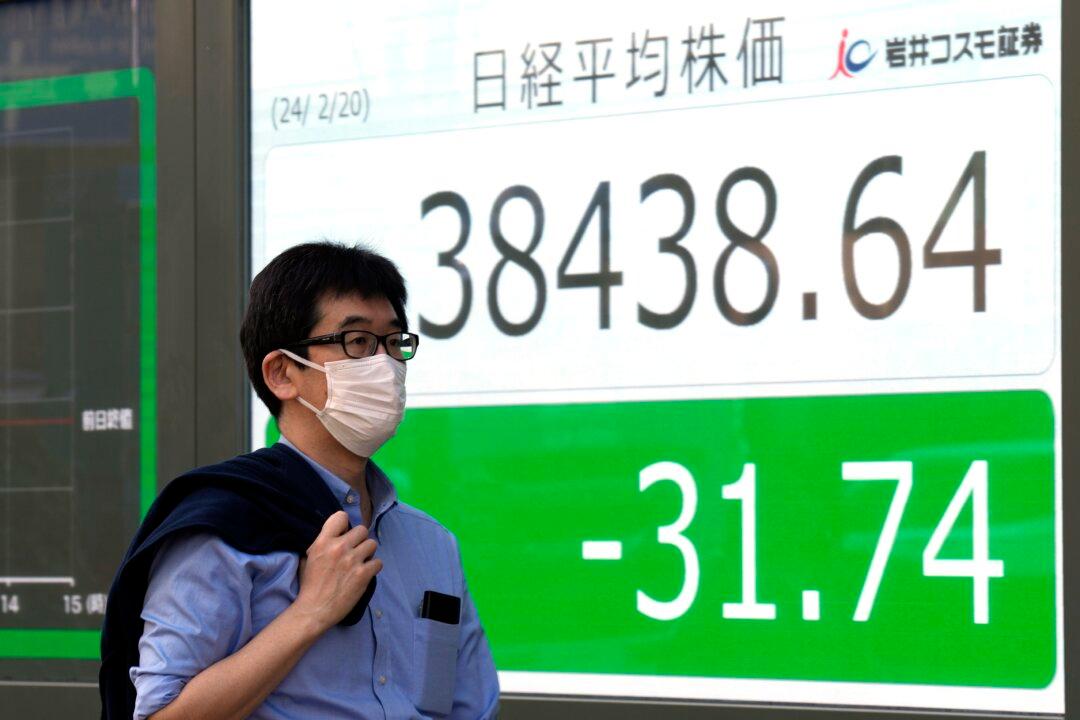TOKYO—Global shares were trading mixed Tuesday on the second day Chinese markets were open after the Lunar New Year break.
France’s CAC 40 added 0.3 percent in early trading to 7,788.86, while Germany’s DAX dipped 0.3 percent to 17,047.67. Britain’s FTSE 100 was little changed, inching up less than 0.1 percent to 7,732.31. U.S. shares were set to drift lower with Dow futures slipping nearly 0.2 percent to 38,621.00. S&P 500 futures were down 0.2 percent to 5,007.50.





